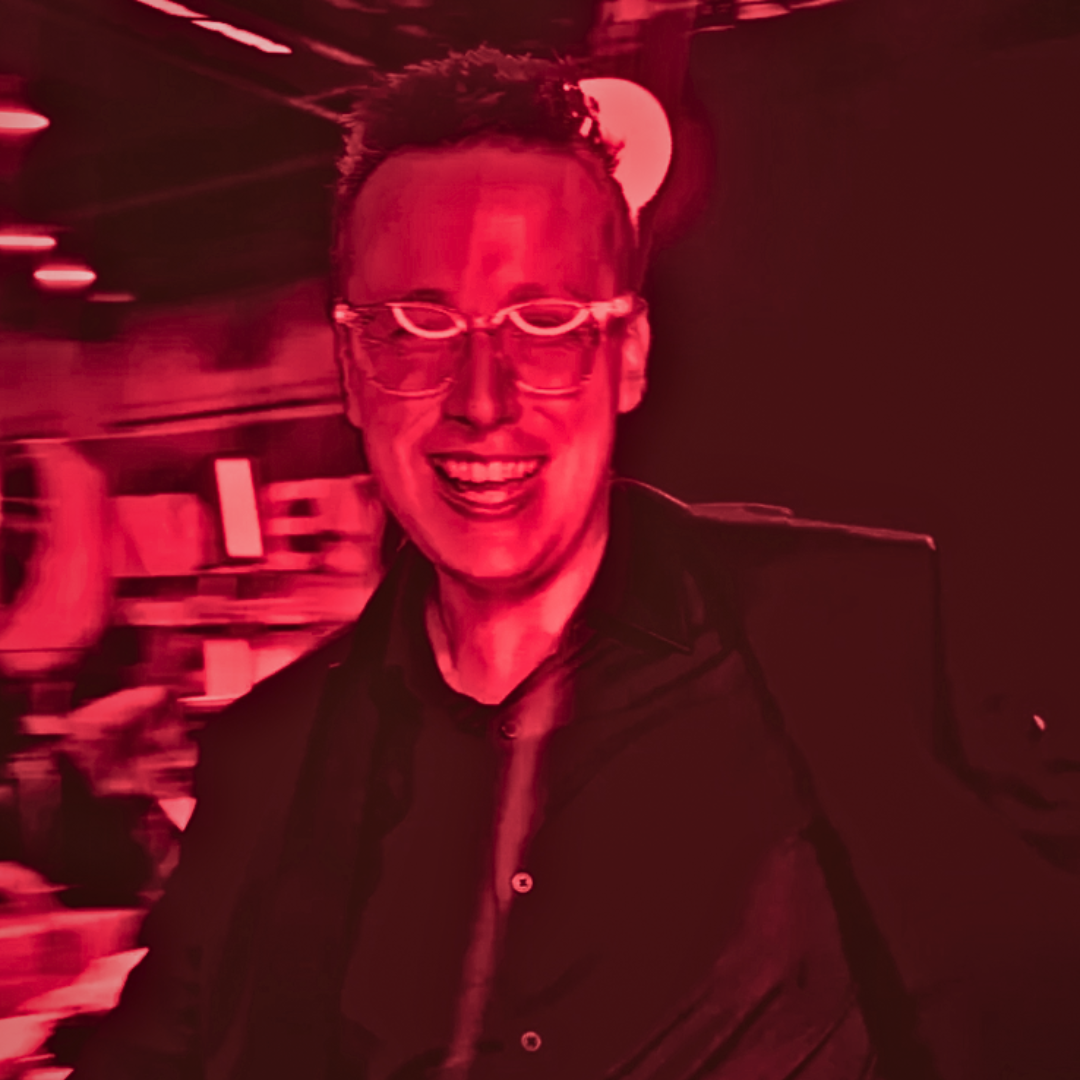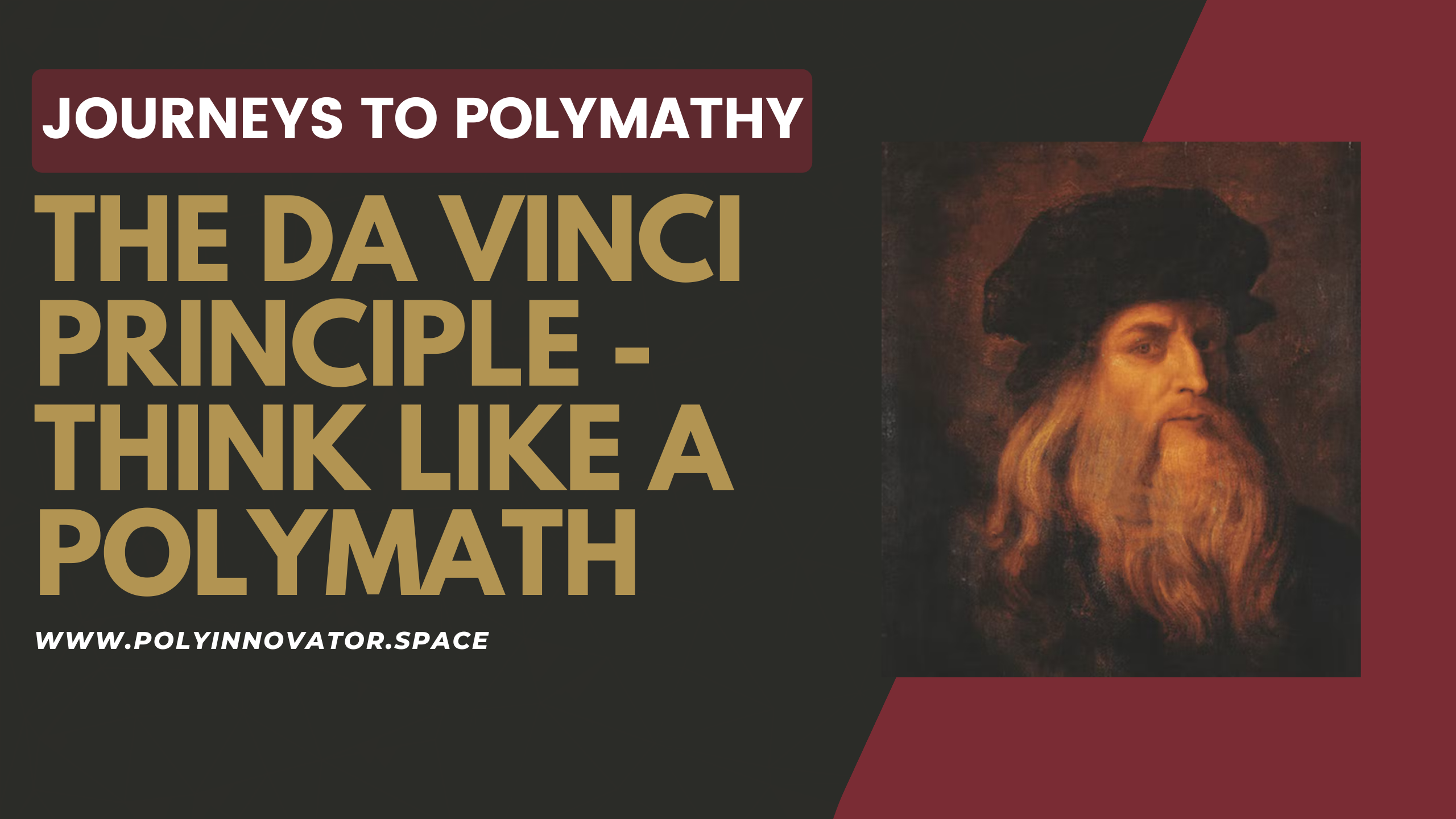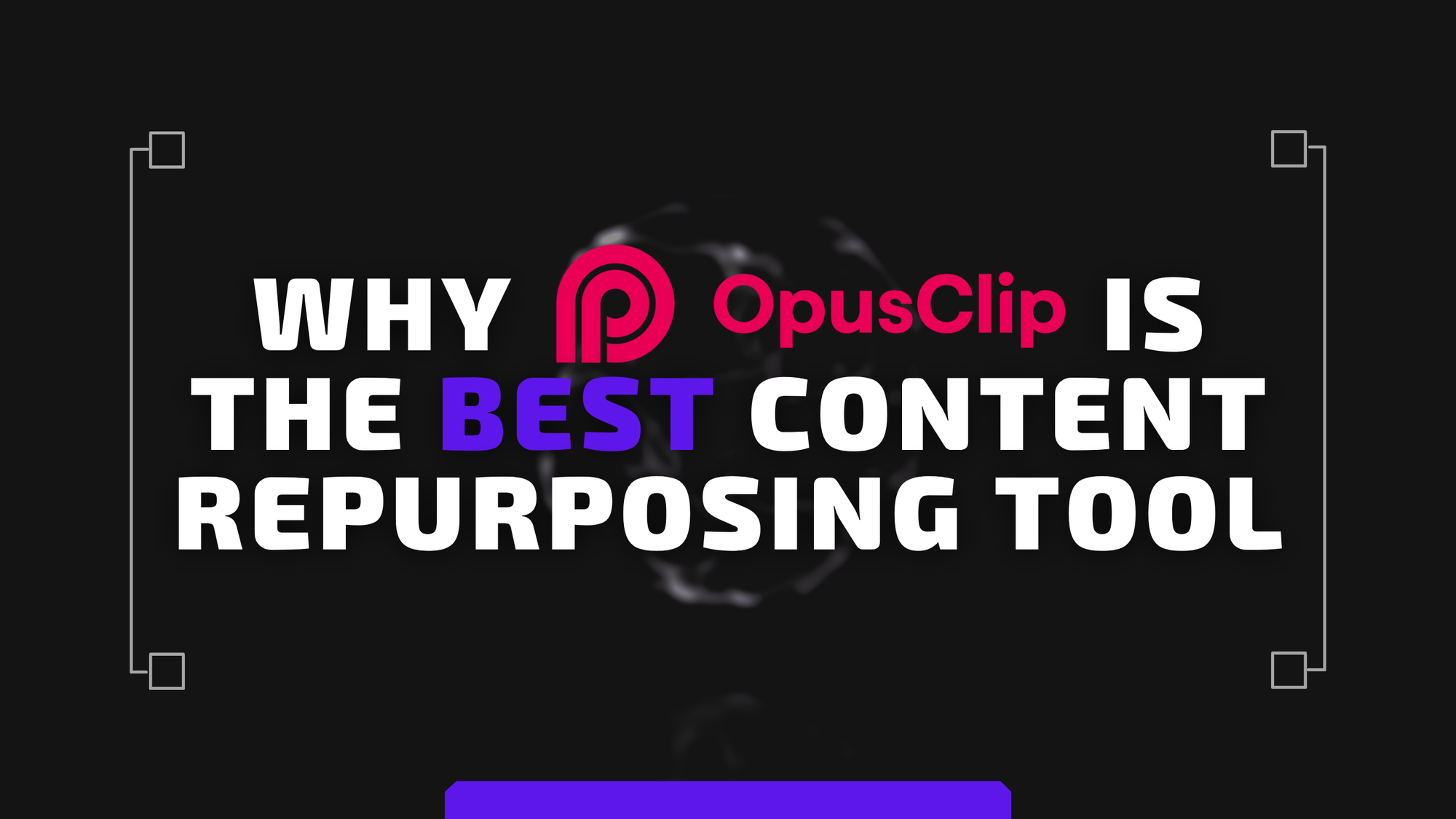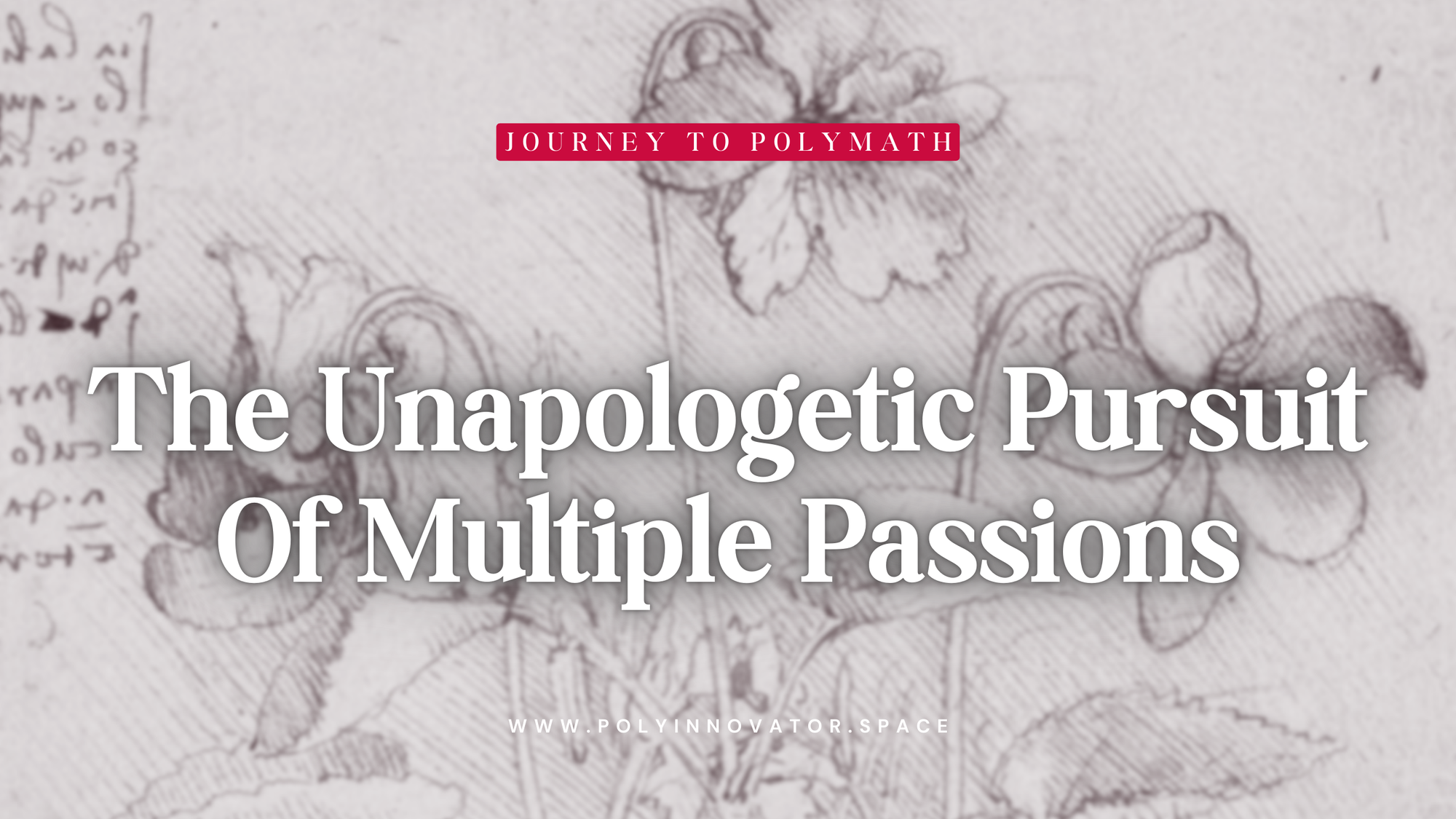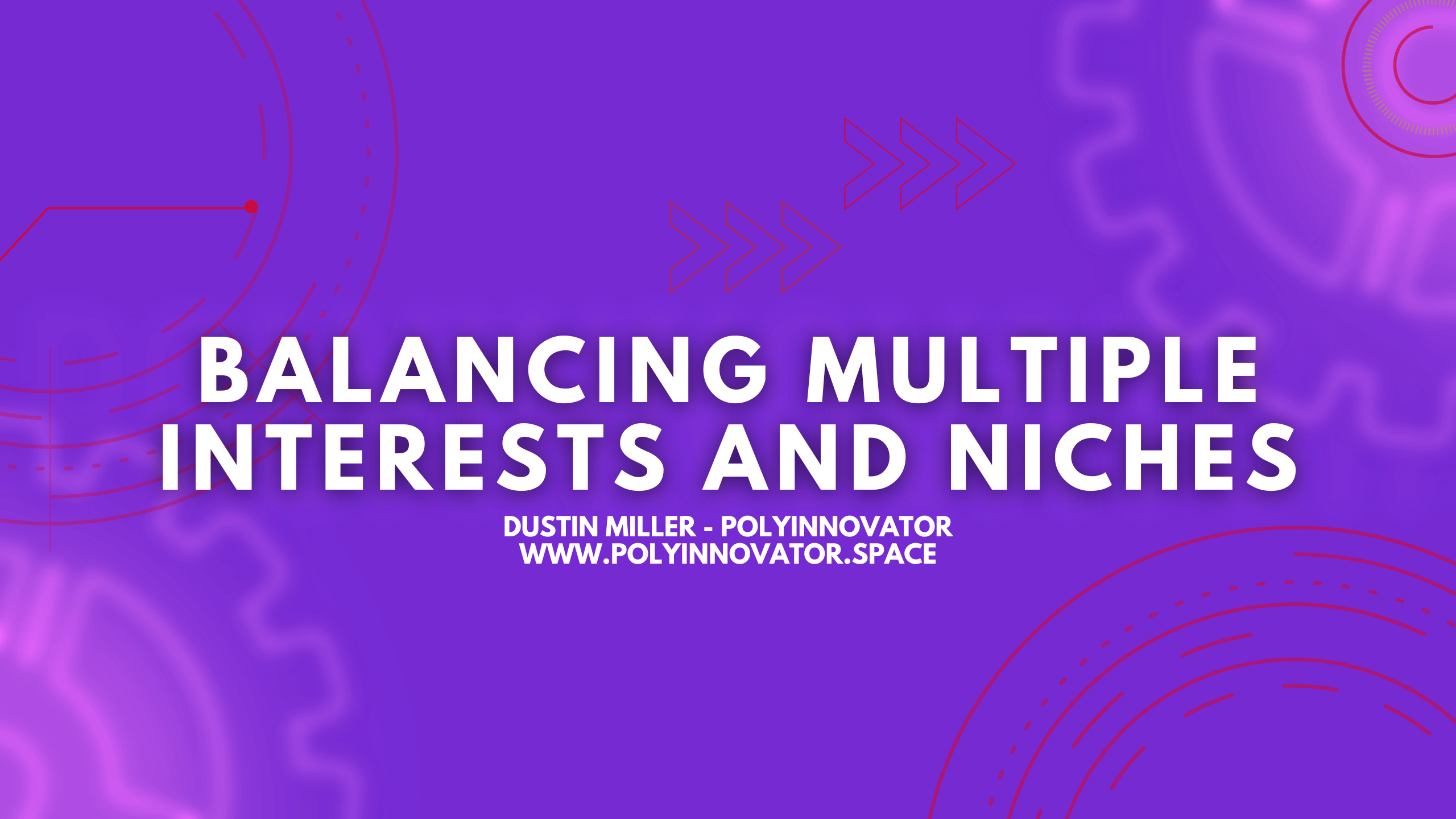Demonstrate a multidisciplinary life and mindset, through curiosity and cultivation of skills.
Finding new ways to do things is always something that will help humanity, but oftentimes looking back at what some of the greats have done is just as helpful. We tend to forget our past as a species, and one of the greatest of us is often overlooked. My hero, Leonardo Da Vinci, in particular.
This post was made in inspiration by the writer Thomas Oppong, with his post of "The Da Vinci Principle — Habits of a Brilliant Polymath"

I wanted to take a different approach to the concepts, but still highlight some great points from his post. I encourage you to open up his article in a new tab, and read it after this one!
More than just an Artist
I think his article really does a good job to exemplify the concept of polymathy, and comparing it to the renaissance person. Many people just assume that Da Vinci was simply an artist. Obviously one of the greatest of all time, but the GoAT of paintings and sculptures was only just that BECAUSE he did more.
Back in the day of the Italian Renaissance one could theoretically know everything there was to know, that is because as a species we didn't know all that much. I'm not selling us short, but rather just putting the focus on all of the amazing advancements over the past 500 years.
Leonardo's work would have put us ahead CENTURIES because of his work in anatomy, light physics, ocular science, hydrodynamics, aerodynamics, and much more.
Systems of Learning
Da Vinci used a system of notebooks, and in doing so was able to keep track of his ideas. Now his brain seemed to have worked quite differently than a lot of people, but the things he did, anyone can do as well. Back then all you had was paper to write on, there were no systems like Notion.so or onenote, or obisidian, etc.
The point is to have a life os, second brain, or in my case a PolyInnovation Operating System; To organize your life, your learning, and your consistent habits. The name of my PIOS is important too, as poly meaning much/many, innovation - constantly changing in life, and operating system for your life.
Curiosity as a Skill
It is something you can cultivate, and when you feel an ever slight spark. To indulge in that curiosity, even if it gets you into trouble. Finding new things to challenge your brain, or to simply just add something to it.
What set Leonardo apart was that he would ALWAYS indulge his curiosities, even to the point of madness at times. At least mad in that time period, such as doing autopsies of dead bodies to see how it all worked. From the valves of the heart, to the physics of the eyes, and even the structure of the human form.
Insatiable Appetite for Novelty
We only live once, and in our time on this Earth we must spend it wisely. True wisdom speaks of living in the moment, and feasting your eyes on the new and novel. Experiencing new things every day.
One thing that motivates me, while at the same time giving me existential terror, is that we don't have enough time. For example in New York City alone there are enough restaurants that even if you went to a new one every day of your life for every meal. Then you would still not be able to experience them all, let alone all of the various establishments across the globe.
Take that same concept and apply it to books, movies, music, video games, people! even, and you have even less time than you realized. #mementomori
The T-Shaped Person
I'm going to start this section out with a quote from the other article, as I think Thomas puts it in an interesting way:
The word “polymath” has existed for centuries. In fact, it was first used back in the 4th century to describe the ancient Greek philosopher Plato, who was known as a “multifaceted individual who had a broad knowledge of many disciplines.”
In the Renaissance period, a polymath was a scholar who excelled in many diverse fields of knowledge. Today, we would call this person a “Renaissance man” or a “T-shaped expert”: someone with deep expertise in one area and broad knowledge across many disciplines.
-Thomas Oppong
What many people misunderstand is that you can't be a polymath if you're a specialist, they are opposites, as you can see the polymath as the "multi-specialist". Someone with many areas of knowledge or learning, as some of the definitions put it. As Thomas refers to as a T-Shaped person.
A T-shaped expert
Now personally I disagree with that reference, as the T-shaped person is just that. A t shape with only ONE line coming out of the width, and some other professionals in the world say M-shaped. However I think we are thinking too alphabetically.
What Thomas was going for when he said that was that the T-shaped person is the modern equivalent, as it is not only harder to become an expert at something in the modern day, but also we are encouraged to specialize.
Generalists like myself are pushed into this narrow frame of mind, and ostracized if try to spread our interests out. T-shaped people are like me and decide they don't care about the perception of others, but rather just want to pursue all of the various interests. The t-shaped concept came from digital marketing, where MOST if not all job listings as for a "digital marketing specialist", but then when you look at the actual description it is for a T-shaped person. A digital marketing GENERALIST if you will. Point is that the T-shape is on the rise, and what usually happens is that it is a person with one specialty who spread out to other areas.
When they spread out they don't USUALLY have a deep level of knowledge in all of those areas, maybe even solely novice level, and I would refer to that as a jack of all trades level of width, but with a specialist depth.
They are an expert in one area, with multiple knowledge bases, and that is how you start to become a polymath. You just have to give it time to build out those other knowledge areas.
The Multidisciplinary Spectrum
This is why I created the Multidisciplinary Spectrum, so that people can identify where they are, and work towards a goal. There are many terms to describe where people are at, from the generalist to the specialist to the polymath, and I made a chart to organize them all. Still a work in progress, but at least a helpful tool to get started.
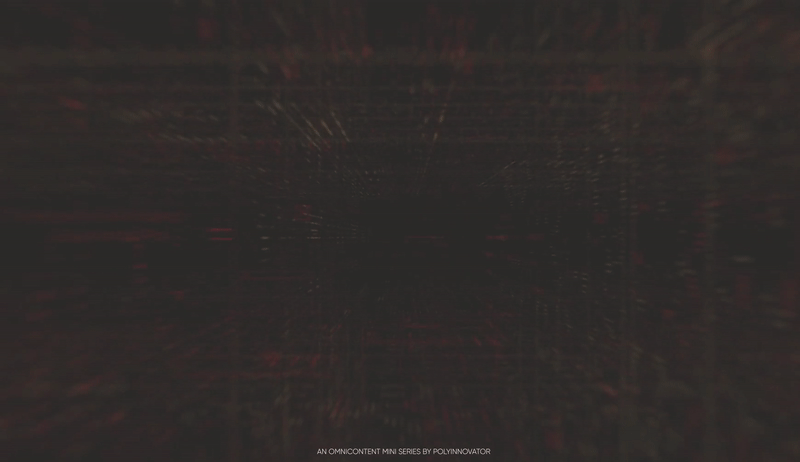
The finale post with everything, but I encourage you to start the mini-series from the beginning!
A Playlist containing all of the videos on the Spectrum, plus additional resources.
The Autodidactic Polymath
To reach such a point of polymathy, you really do have to have a love of learning. There are so many things that you can learn out there, that if you aren't motivated intrinsically or curiously then it won't work!
In the modern world, it doesn’t take much to qualify as a polymath, especially if you have good internet access and like reading and researching new topics in your spare time.
This where I have to disagree, Thomas, as becoming a polymath is that of a lifelong thing. You have to give knowledge time to set in, and oftentimes people don't define themselves as one, as sadly most polymaths we can think all were called that posthumously. However we can strive to achieve that level by curating our life into such a way.
By learning in many ways, and using the resources online like you said. Perhaps even using a Modular Degree to do it, as this was the reason why I created the system.
There are a lot of people working on, right now, how to quantify what it means to be a polymath. From the research perspective there are some hard goal posts to hit, such as having an expert level of knowledge in three or more areas, or contributing something to that field. Presumably given their background, they are more referencing the act of publishing a masters/phd paper/dissertation in that field. Although I would think being a content creator, and adding something big like a book would count too.
Becoming a polymath isn't easy, and becoming a SUCCESSFUL one even more so.
A phenomenal book to get you started:
How to Think Like Leonardo da Vinci: Seven Steps to Genius Every Day
https://www.amazon.com/How-Think-Like-Leonardo-Vinci/dp/B015D841FI/ref=sr_1_1?keywords=How-Think-Like-Leonardo-Vinci%2F&qid=1661036570&sr=8-1
Many thanks to Thomas

He makes many more points that I recommend checking out, that I didn't touch on in this post.
“Study the science of art. Study the art of science. Develop your senses — especially learn how to see. Realize that everything connects to everything else, ” says Leonardo Da Vinci.
![Official Website for Dustin Miller PolyInnovator [LLC]](https://polyinnovator.space/content/images/2025/03/polyinnovator-logo-2024.png)
